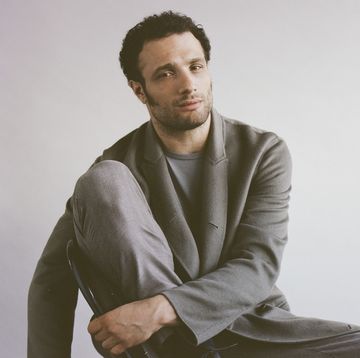This summer, Riz Ahmed gave a stunning performance in The Night Of as an innocent Pakistani-American college student who is caught up in the institutionalised racism of the criminal justice system. With late night television appearances supporting the HBO limited-series and an upcoming role in Rogue One: A Star Wars Story, Ahmed is quickly becoming a household name across the pond.
In a new essay written for the upcoming collection The Good Immigrant, Ahmed opens up about what it took to get to a comfortable place in both Hollywood and the United States. As he explains in this emotional essay, there are three typecasts for ethnic minorities one is the two-dimensional stereotype – the minicab driver/terrorist/cornershop owner," another is "the subversive portrayal, taking place on 'ethnic' terrain but aiming to challenge existing stereotypes," and the final is "the Promised Land, where you play a character whose story is not intrinsically linked to his race. There, I am not a terror suspect, nor a victim of forced marriage. There, my name might even be Dave."
Ahmed's essay has more to do with being typecast in everyday life—going through airport security, applying for jobs, and confronting police—than it does about roles for minorities in TV and movies. Rather than focus in on the entertainment industry, he widens it to include the broader struggle of the people who he sees in airport holding areas.
You see, the pitfalls of the audition room and the airport interrogation room are the same. They are places where the threat of rejection is real. They are also places where you are reduced to your marketability or threat-level, where the length of your facial hair can be a deal-breaker, where you are seen, and hence see yourself, in reductive labels—never as "just a bloke called Dave." The post 9/11 Necklace tightens around your neck.
One specific moment he recalls is when he was flying back to London after his 2006 film The Road to Guantánamo won an award at the Berlin International Film Festival. Going through security at the airport, he's detained and violently questioned by security.
In the end, I was always let in, so these airport auditions were technically a success. But they involved the experience of being typecast, and when that happens enough, you internalise the role written for you by others. Now, like an over-eager method actor, I was struggling to break character.













